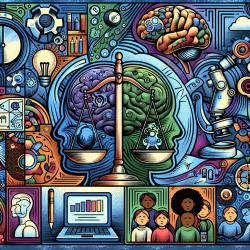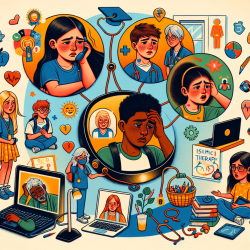Understanding the Impact of Social Inequality on Mental Health
The research article "Social inequality, scientific inequality, and the future of mental illness" by Charles E. Dean highlights a critical issue in the field of psychiatry: the lack of progress in the diagnosis and treatment of mental illnesses, despite decades of research. This stagnation is partly attributed to the rise in social and economic inequality, which has been overlooked in favor of a reductionist medical model.
The Medical Model: A Double-Edged Sword
The medical model in psychiatry emphasizes the specificity of disease and treatment, similar to general medicine. However, this approach has been inadequate for mental health due to the brain's complexity. While the model has driven significant research, it has not led to substantial improvements in clinical care. Practitioners must recognize that mental disorders are influenced by a myriad of factors, including socioeconomic conditions.
Socioeconomic Factors: The Overlooked Determinant
Dean's research suggests that the increase in socioeconomic inequality since the 1970s has contributed to poorer mental health outcomes. Disorders such as schizophrenia, anxiety, and depression have shown rising mortality rates, partially due to the neglect of socioeconomic factors in research and treatment.
Implications for Practitioners
As practitioners, it's crucial to integrate an understanding of social determinants into mental health care. Here are actionable steps to consider:
- Holistic Assessments: Evaluate patients' socioeconomic backgrounds as part of the diagnostic process.
- Community Engagement: Collaborate with community resources to address social determinants affecting mental health.
- Advocacy: Advocate for policies that address income inequality and improve access to mental health services.
- Continued Education: Stay informed about the latest research on social determinants and mental health.
Encouraging Further Research
Practitioners are encouraged to contribute to research that explores the intersection of social inequality and mental health. By doing so, we can develop more effective interventions and policies that address the root causes of mental health disparities.
For those interested in delving deeper into this topic, the original research paper offers a comprehensive analysis and can be accessed here: Social inequality, scientific inequality, and the future of mental illness.










